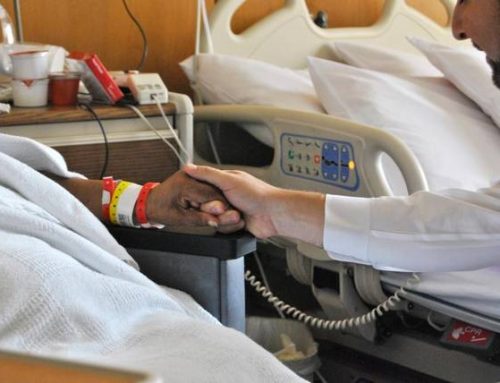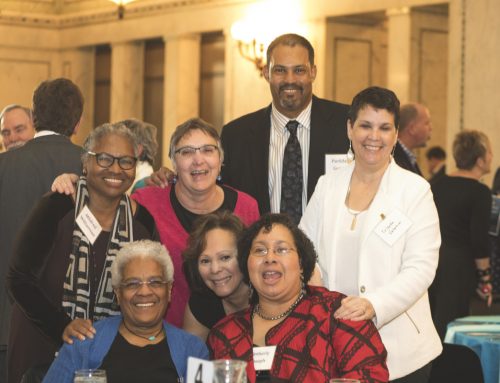Plotting the course to a vibrant future
As you may have heard by now, Bishop Anderson House will be undertaking a strategic planning process in 2016. At its January meeting, the board of trustees made the decision to be guided in the strategic planning process by Dr. Richard O’Neill, Professor in the Institute for Decision Excellence and Leadership at SUNY Upstate Medical Center in Syracuse, NY. What is distinctive about Dr. O’Neill’s process is that the plan will emerge from the board itself. We have a very talented board of psychologists, clergy, medical doctors, business professionals, artists, and lay leaders that are committed to the same values that founded Bishop Anderson House 66 years ago. I am looking forward to great new things emerging from this process that will help us have an even greater impact on the community in the areas of spiritual and emotional care and support.
Bishop Anderson House is 66 years old and has gone through many transitions: from an academic club that primarily explored the intersection of medicine and spirituality; to providing child care for children of nursing school and medical school students; to supporting Episcopal patients in the Illinois Medical District at Rush, University of Illinois-Chicago and Stroger Cook County Hospital; to distributing teddy bears to HIV+ and pediatric patients; to training of volunteer lay chaplains; to supporting patients, regardless of their religious background, by professionally trained chaplains. The planning will lead us into our future as we continue to identify and meet the spiritual and emotional needs of our targeted community.
Bishop Anderson House clearly has transformed and changed over time. However, it has always maintained continuity with its foundational purpose and mission, whether in Bishop Anderson’s commitment to social justice through the support of the least of these in our midst, or in our advocacy for healthcare reform. In my previous hospital, I discovered that before the institution would make substantive changes, leadership would go back and read Mr. Johns Hopkins’s will to make sure the hospital would remain connected to the history and principles that it was founded on. For Johns Hopkins Hospital, that meant ensuring that all patients, regardless of religion, race, or gender, received the best medical care available (something that was progressive at its founding!). The same is true for us as an organization. Whatever is next for Bishop Anderson House, it will be deeply rooted in our history and remain faithful to our values.
I hope you will join me in prayer for this undertaking and be on the look out for the initial opportunity to contribute to this process via electronic survey.
Thank you for the love you have for this holy house and the work it does,
Tommy








Leave A Comment